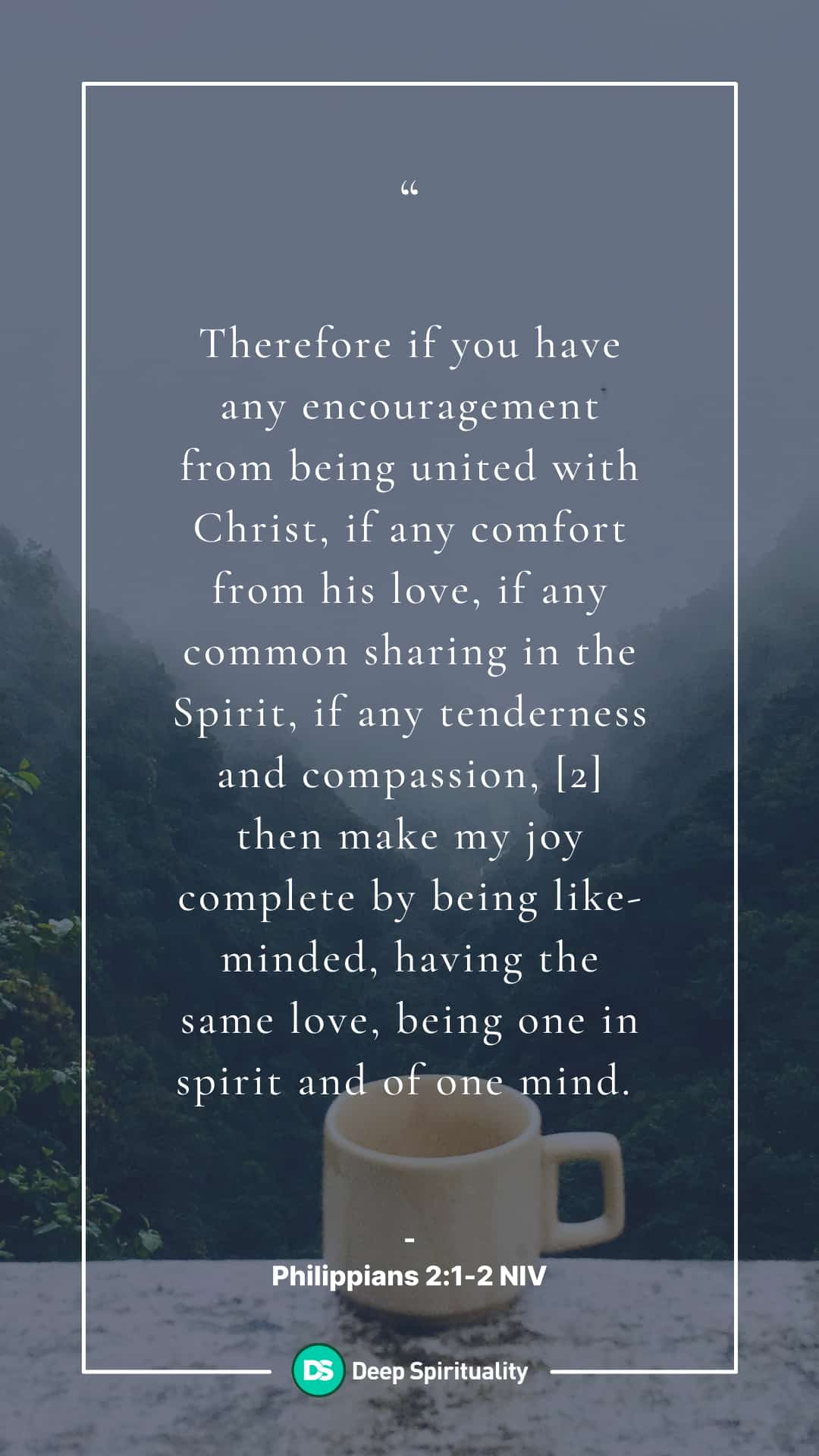Table of Contents
Contents
Find your delight in the LORD. Then he will give you everything your heart really wants.
Psalm 37:4 NIrV
God doesn’t want us to talk to him begrudgingly, out of habit or duty.
He wants us to enjoy our relationship with him, to find delight in spending time with him.
Kids can teach us a lot about our relationship with God, and my 3-year-old daughter helps me understand this scripture. At this age, she is still “delighted” to be with mom and dad.
She loves when I sit with her and watch her favorite movies, eagerly pointing out all her favorite scenes for me to enjoy. She frequently bursts into our room to show her dad her latest drawings or update him on what her stuffed animals are doing.

Seeing her enjoy our company so much teaches me a lot about how it must make God feel when I enjoy being with him.
The Bible says that when we find our delight in God, he will give us everything our heart really wants. Our emotional needs for love, security, acceptance, and protection will be covered by God. That means our hearts will be satisfied and happy because of our relationship with him, leaving us freed up to care for other people.
To enjoy this kind of relationship with God, we have to learn how to experience God emotionally. Delight is a feeling. Without emotion, our relationship with God will become nothing more than a distant, empty tradition:
These people honor me only with their words, for their hearts are so very distant from me. [9] They pretend to worship me, but their worship is nothing more than the empty traditions of men.”
Matthew 15:8-9 TPT
On the other hand, sometimes we listen to our emotions too much and they replace God and his Word (Philippians 3:19 GW).
So how do we handle our emotions in a way that leads us to a more satisfying relationship with God? In this study, we’ll look at 6 scriptures on emotions that will help you enjoy your relationship with God.
Emotions matter to God
Let the evil within wicked people come to an end, but make the righteous person secure, O righteous God who examines thoughts and emotions.
Psalm 7:9 GW
God examines thoughts and emotions. That means he cares about what you really feel and think, not just about what you do.
Daily life is profoundly emotional. A large study on human emotion in 2015 found that participants experienced at least one emotion 90% of the time, and frequently experienced positive and negative emotions at the same time.
In case you were wondering, the researchers didn’t find any gender differences in these results. Men and women in the study experienced a very similar frequency of emotions on a daily basis.
So whether you consider yourself “emotional” or not, the truth is everyone is emotional. The question is, what do you do with your emotions?

To examine means to inspect something thoroughly. Do you examine your thoughts and emotions? Or do you tend to ignore, hide, or indulge your feelings?
Examining emotions is different than indulging them or navel-gazing. Examining means you honestly admit your feelings and seek to understand them. Indulging means you believe your emotions, follow them, and won’t question what’s driving them.
Often, the more religious we become, the more we want to deny certain emotions because we think we “shouldn’t” feel them. Perhaps I “shouldn’t” feel afraid of what someone thinks of me… but the truth is I do.
Examining your emotions means dealing with the truth of what’s in your heart, regardless of what you think you “should” or “shouldn’t” feel. God wants to know and understand what’s really inside us, and your relationship with him won’t be close if you refuse to admit your real thoughts and feelings.
Examining also means being willing to ask yourself why you feel what you feel. Examining your emotions means you don’t just dump them on God or people around you, but you ask yourself questions like “Why do I feel this way? What do these feelings reflect about my trust and faith in God?”
Pause and reflect
- Is it ever hard for you to admit certain feelings because you think you “shouldn’t” feel them?
- How willing are you to examine and admit your real emotions?
Beware of runaway emotions
A sound mind makes for a robust body, but runaway emotions corrode the bones.
Proverbs 14:30 MSG
“Runaway emotions” means my emotions are running my life. I’m overly consumed by them, and I believe them as truth. I’m preoccupied by them, and God is no longer involved. My emotions feel bigger, stronger, and more real than the Scriptures.
As this verse tells us, runaway emotions corrode us from the inside out. They gradually destroy and weaken our physical strength and our faith in God.
At work, for example, when I’m overrun by fear and insecurity, projects become more taxing, and I tend to feel very exhausted at the end of the day.
But when I’m full of faith and confidence that God has my back, I feel more excited and energized at the end of the day. I’m also able to unload my cares and worries in prayer, knowing they matter to God and he cares about me (1 Peter 5:7). The work might be the same, but I feel less tired.

I also think it’s important to note here that you could have “runaway emotions” even if you don’t express these feelings out loud. Sometimes I think I’m not being “emotional” because I’m not raging out loud like I am in my head.
But suppressed or hidden emotions can still run your life and even corrode your physical health. Scientific research has linked suppressed or repressed emotions to physical conditions like:
- A weakened immune system
- Muscle tension and pain
- Nausea and digestive problems
- Fatigue and sleep problems
- Increased risk of cancer
Becoming aware of “runaway emotions” and learning how to handle them is very important to our spiritual and physical well-being.
A good question you can ask yourself to determine whether your emotions are running away with you is: “Do these emotions match what the Bible says?” If the answer is no, then you’re probably living by your emotions rather than God’s Word.
For example, sometimes I get very afraid to be honest because I’m afraid of rejection. But the Bible says that honesty brings close fellowship and forgiveness (1 John 1:7-10). Being overly fearful is a sign I’m letting my emotions run my life instead of trusting the truth of God’s Word.
Pause and reflect
- What are some examples of fears or emotions you have that seem more true to you than God’s promises in Scripture?
Emotional honesty connects us with God
The more honest I am with God, the more I will sense his presence and grace in my life:
“Here’s what I want you to do: Find a quiet, secluded place so you won’t be tempted to role-play before God. Just be there as simply and honestly as you can manage. The focus will shift from you to God, and you will begin to sense his grace.
Matthew 6:6 MSG
Role-playing before God is saying what you think you should say or acting like you’re something you’re not, instead of being as honest as you can manage.
When I’m as honest as I can manage, my focus will shift from myself and my feelings to God.
The Bible tells me I’ll begin to sense his grace – his unmerited favor on my life. I’ll believe he cares about me, he forgives me, and my prayers matter to him.

Role-playing makes my relationship with God stale, fake, and boring. Here’s an example:
| Role playing examples: | Honest |
| God, help me with this situation. | God, I’m so afraid and I can’t do this without you. Help me … |
| Be with me in this situation. | I know these are small things, and I feel weak that I’m so worried about them. I’m so anxious about … |
| God, forgive me for … | I feel unworthy and afraid to share this. I need your mercy and I feel undeserving. |
Go deeper
Read the prayers of the Pharisee and the tax collector in Luke 18:9-14.
- Who do you think was more emotionally honest?
- How do you think the tax collector’s emotional honesty about his sin and guilt helped his relationship with God?
- How do you think the Pharisee’s lack of emotional honesty affected his prayer life?
- How can you imitate the tax collector’s honesty with God?
Unmet emotional needs will turn us away from God
To an image carved from a piece of wood they say, ‘You are my father.’ To an idol chiseled from a block of stone they say, ‘You are my mother.’ They turn their backs on me, but in times of trouble they cry out to me, ‘Come and save us!’
[28] But why not call on these gods you have made? When trouble comes, let them save you if they can! For you have as many gods as there are towns in Judah. Jeremiah 2:27-28 NLT
An idol is something other than God that we rely on for emotional support. In Old Testament times, these idols were often physical objects that people worshipped and looked to for security, protection, and care while turning their backs on God.
Idolatry is insulting to God and hurtful (how do you feel when someone turns their back on you?). It’s also useless; these objects can’t actually help us in times of trouble.

When I read the Old Testament, what stands out to me is that the idolatry of God’s people often started with unmet emotional needs. They were afraid, needed protection, faced threats to their physical well-being, and didn’t feel in control of their future.
I relate to all of these feelings, especially in the chaotic times we live in today. But it serves as a warning to me that if I don’t learn to connect emotionally with God and rely on him emotionally, I will eventually turn away from him.
At this point in the book of Jeremiah, God’s people had more false gods than they had towns. Idolatry was running rampant and unchecked. It was making them forget who God really was and seem to lose interest or feel burdened by him:
“O my people, listen to the words of the LORD! Have I been like a desert to Israel? Have I been to them a land of darkness? Why then do my people say, ‘At last we are free from God! We don’t need him anymore!’
[32] Does a young woman forget her jewelry, or a bride her wedding dress? Yet for years on end my people have forgotten me. Jeremiah 2:31-32 NLT
While idols today for me don’t take the form of physical stone or wood objects, idolatry can run rampant in my heart while I don’t even notice.
I can become so accustomed to relying on idols other than God to get my emotional needs met that I don’t even notice as they take over my heart and push God out of my life.
These are some of my most common idols:
- Achievements – Looking to take pride in my accomplishments to make me happy
- People – Looking for a person to make me happy. For me, it’s commonly my spouse, but it can be any human relationship like a friend, a boss, or a parent. Idolizing a person inevitably leads to a lot of resentment because that person is only human and can’t meet all our emotional needs.
- Physical appearance – Looking for a perfect appearance to make me happy
- Prosperity – Looking for success, property, or possessions to make me happy
I turn to these idols because I think they’ll help me emotionally. I think they’ll relieve my fears and bring me security, comfort, and pleasure.
The truth is, none of these idols satisfy my heart. What my heart really craves is unfailing love (Proverbs 19:22 NIV) and only God can provide that:
Satisfy us in the morning with your unfailing love, that we may sing for joy and be glad all our days.
Psalm 90:14 NIV
Pause and reflect
- Who (or what) do you tend to rely on to meet your emotional needs, other than your relationship with God?
- Why do you think you turn to those things instead of turning to God?
Emotions can be a gateway to experiencing God
I’ve been described as “emotional” many times (by myself and others), and I usually see it as a negative thing. It implies to me being overrun, irrational, weak, and out of control. But actually, being “emotional” can be a great asset to your relationship with God.
Emotions can help us connect with and experience God in a healthy way on an emotional level, as David did:
King David’s song when he was exiled in the Judean wilderness
[2] I’m energized every time I enter your heavenly sanctuary to seek more of your power and drink in more of your glory. [3] For your tender mercies mean more to me than life itself. How I love and praise you, God! [4] Daily I will worship you passionately and with all my heart. My arms will wave to you like banners of praise. [5] I overflow with praise when I come before you, for the anointing of your presence satisfies me like nothing else. You are such a rich banquet of pleasure to my soul. [8] With passion I pursue and cling to you. Because I feel your grip on my life, I keep my soul close to your heart. Psalm 63:1-5,8 TPT
O God of my life, I’m lovesick for you in this weary wilderness. I thirst with the deepest longings to love you more, with cravings in my heart that can’t be described. Such yearning grips my soul for you, my God!
Expressing our own emotional needs is not about taking from God or using God as a dumping ground for all our feelings. It’s about recognizing our need for him.
In this Psalm, David starts off expressing his emotional needs. He’s been exiled, alone, in a weary place. But he recognizes that his longings and cravings are not for attention, status, money, or control. His insides are crying out for God.

As he expresses his emotional needs, his focus shifts from himself to God – to God’s tender mercies, God’s power, and God’s satisfaction. God is a pleasure to his soul.
Because of who God is, not because of what David will get from him, David wants to keep himself close to God.
As he expresses his emotional needs, his focus shifts from himself to God – to God’s tender mercies, God’s power, and God’s satisfaction
I think sometimes the holes in our lives – the weaknesses, needs, and overpowering emotions we experience – are symptoms of our soul thirsting for God. David took his strong emotions to God, telling him vulnerably how much he needed him.
As a result, he “felt” God’s grip on his life. David emotionally experienced God. His relationship with God was not a ritual, a performance, or a habit. He could feel God.
Expressing our emotions honestly to God will help us “feel” his grip on our life.
Some of the most memorable moments in my relationship with God have been when I’ve vulnerably told him how empty I feel, admitted my idols aren’t satisfying me, and told him how much I need him. I feel a sense of calm and peace knowing I always have my relationship with God, and that’s enough to make me happy and secure.
To me, that’s what it feels like when God’s presence satisfies me like nothing else.
Pause and reflect
- Have you been expressing your emotional needs in your relationship with God? If not, why not?
- What emotions could you express to God to grow closer to him?
Emotional connection with God helps us value emotional connection with others
Therefore if you have any encouragement from being united with Christ, if any comfort from his love, if any common sharing in the Spirit, if any tenderness and compassion, [2] then make my joy complete by being like-minded, having the same love, being one in spirit and of one mind.
[3] Do nothing out of selfish ambition or vain conceit. Rather, in humility value others above yourselves, [4] not looking to your own interests but each of you to the interests of the others. [5] In your relationships with one another, have the same mindset as Christ Jesus: [6] Who, being in very nature God, did not consider equality with God something to be used to his own advantage; [7] rather, he made himself nothing by taking the very nature of a servant, being made in human likeness. Philippians 2:1-7 NIV
What I love about this passage is that it seems to explain how our emotional connection with God helps us connect with and love people around us. In other words, experiencing encouragement, comfort, tenderness, and compassion in my own relationship with God will enable me to share those things with others.
I tend to have a hard time connecting with and “valuing others above myself.” I know it’s a good thing to do, but putting it into practice is hard for me.

Recently, I was feeling that way in my marriage.
Tired from my own worries and the things I needed to do, I felt I had no emotional bandwidth to ask my husband how he was doing or help him with his stress. I kept finding myself irritated at his weaknesses and resentful of the ways I didn’t feel like he was helping me enough.
But the godless in heart nurture anger; They do not call for help when He binds them.
Job 36:13 NASB
This scripture helped me realize that I was nurturing anger because I wasn’t calling out for help from God in the areas I felt I really needed it. I wasn’t telling God how overwhelmed I felt, how out of control I felt, and how much help I needed with my daily anxieties.
And so I was just getting angry – at my limitations, at the pandemic, and at anyone around me who seemed to be getting in my way (i.e. my spouse).
My undealt-with emotions were making me selfish. I was becoming self-piteous, self-indulgent, and self-consumed.
The only way I can have the emotional room to value connecting with others is if I have an emotional connection with God that meets my needs.
The only way I can have the emotional room to value connecting with others is if I have an emotional connection with God that meets my needs
I need to know God has my back, and I can turn over my cares and worries to him (1 Peter 5:7). I need to know he forgives me (Psalm 32). I need to know God will give me courage and guide me on the best path for my future (Romans 8:28).
When these emotional needs are met, I have room to connect with others and I have more of a heart and desire to help others feel the same way with God.
A big part of management, leadership, sales, and navigating relationships is being able to understand what people are really feeling. It is striking how often a single concession or action could have averted so much conflict and wasted time, effort, and resources.
In general, people can be very bad at recognizing the emotions of themselves and others, which in turn leads to a lot of misunderstandings and missteps. In some ways, life and professional and personal interactions would be a lot easier if everyone had emotional traffic lights on their foreheads.
Bruce Y. Lee, “Here are 27 Different Human Emotions, According To A Study”
Our emotions matter a lot in our relationship with God and others around us. Take some time to reflect on how you handle your emotions and how that affects your relationship with God.
Talk to God about what you learned and then share your insights honestly with a couple friends so you can understand each other better and grow closer.
Then, check out these studies for further growth in your emotional connection to God:
Explore more:
Amy is a writer and editor for Deep Spirituality. She studied psychology at the University of California, Berkeley, and has over a decade of experience in mentoring, counseling and community organizing.
Amy is a writer and editor for Deep Spirituality. She studied psychology at the University of California, Berkeley, and has over a decade of experience in mentoring, counseling and community organizing.





